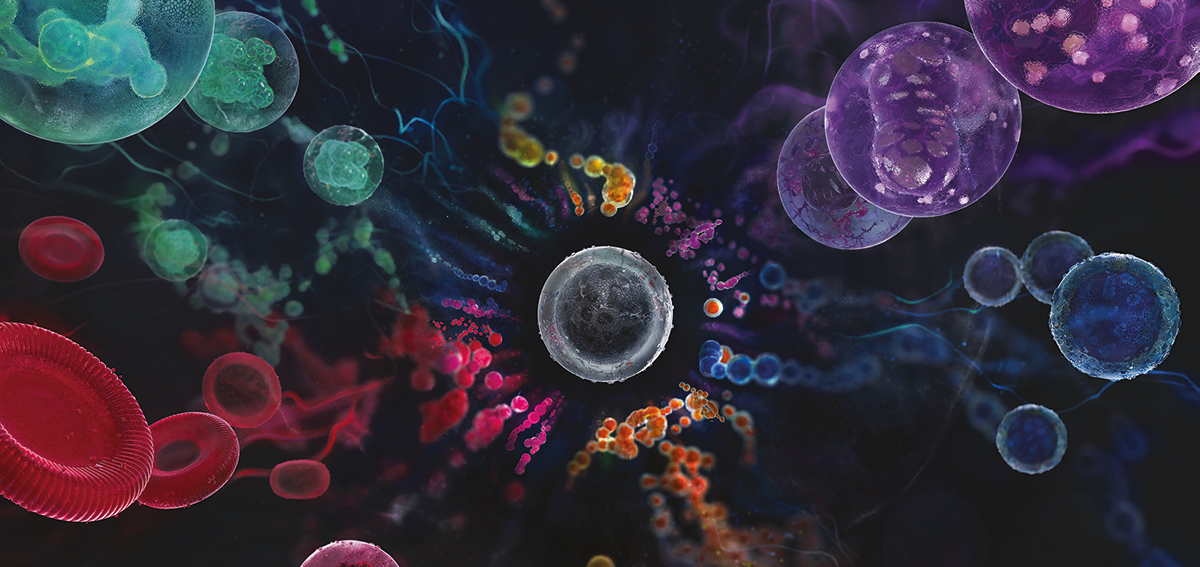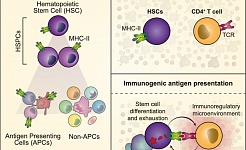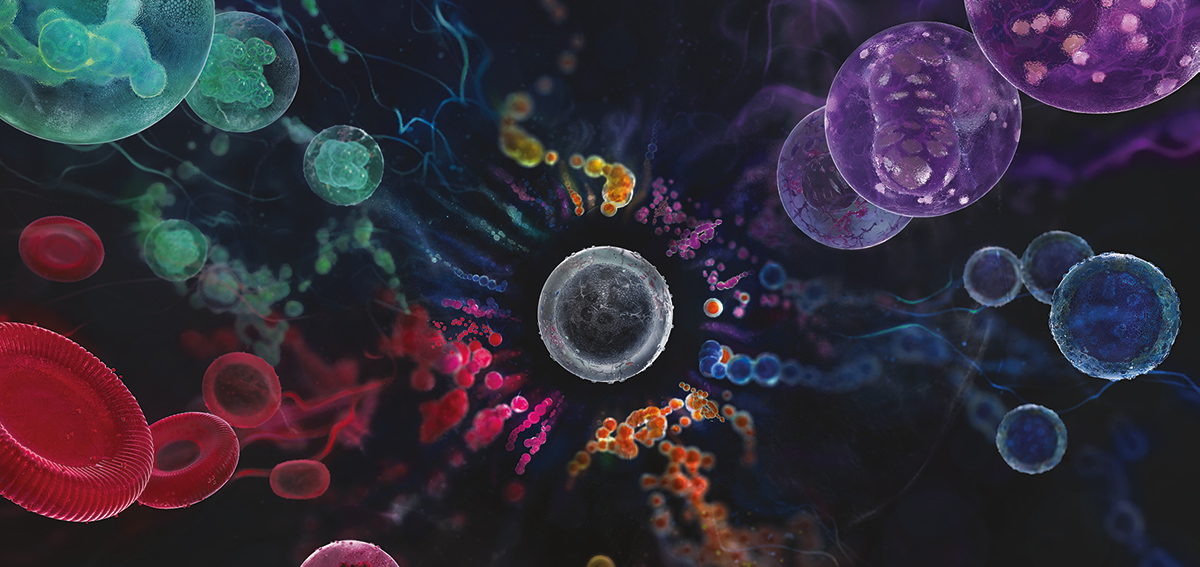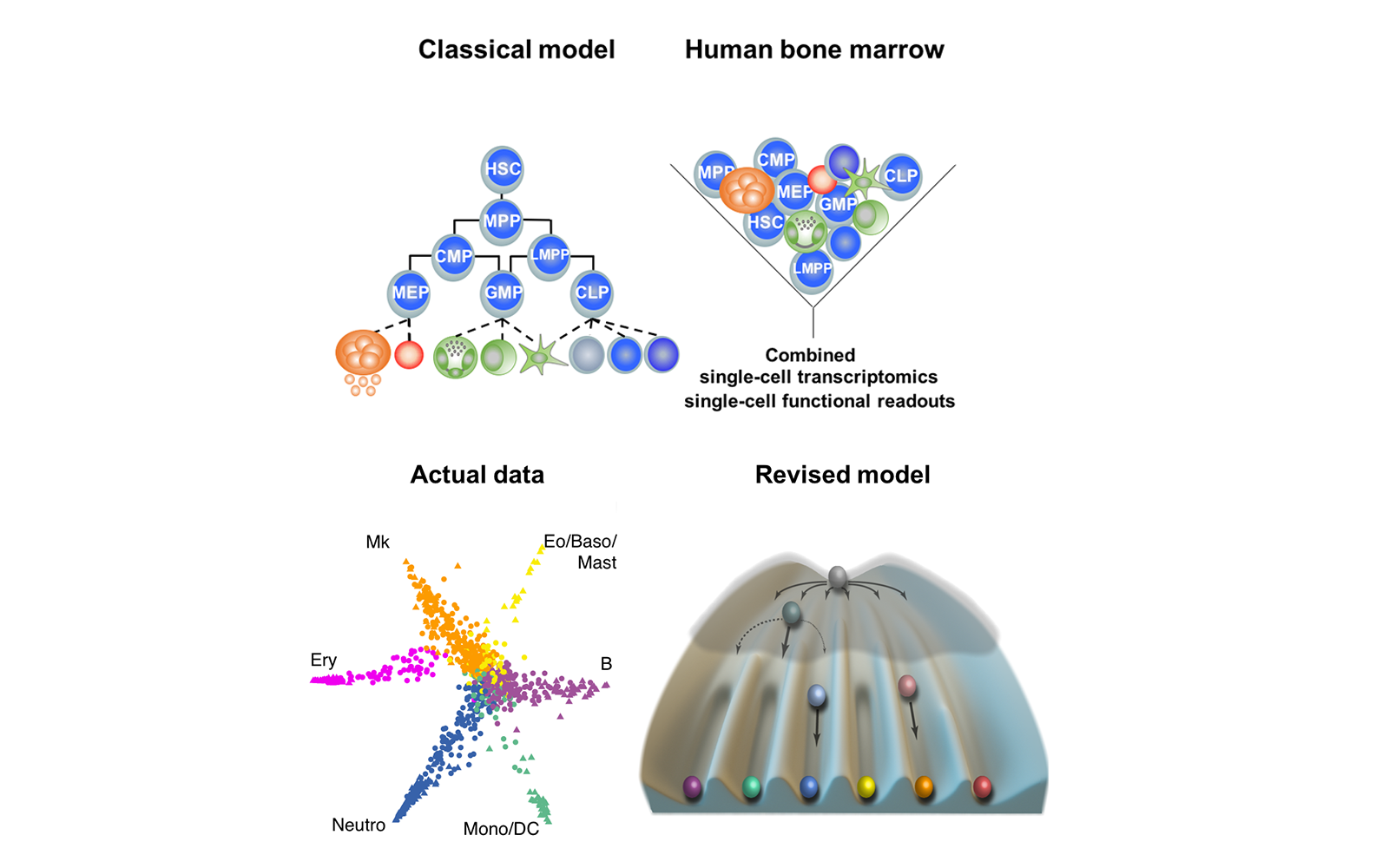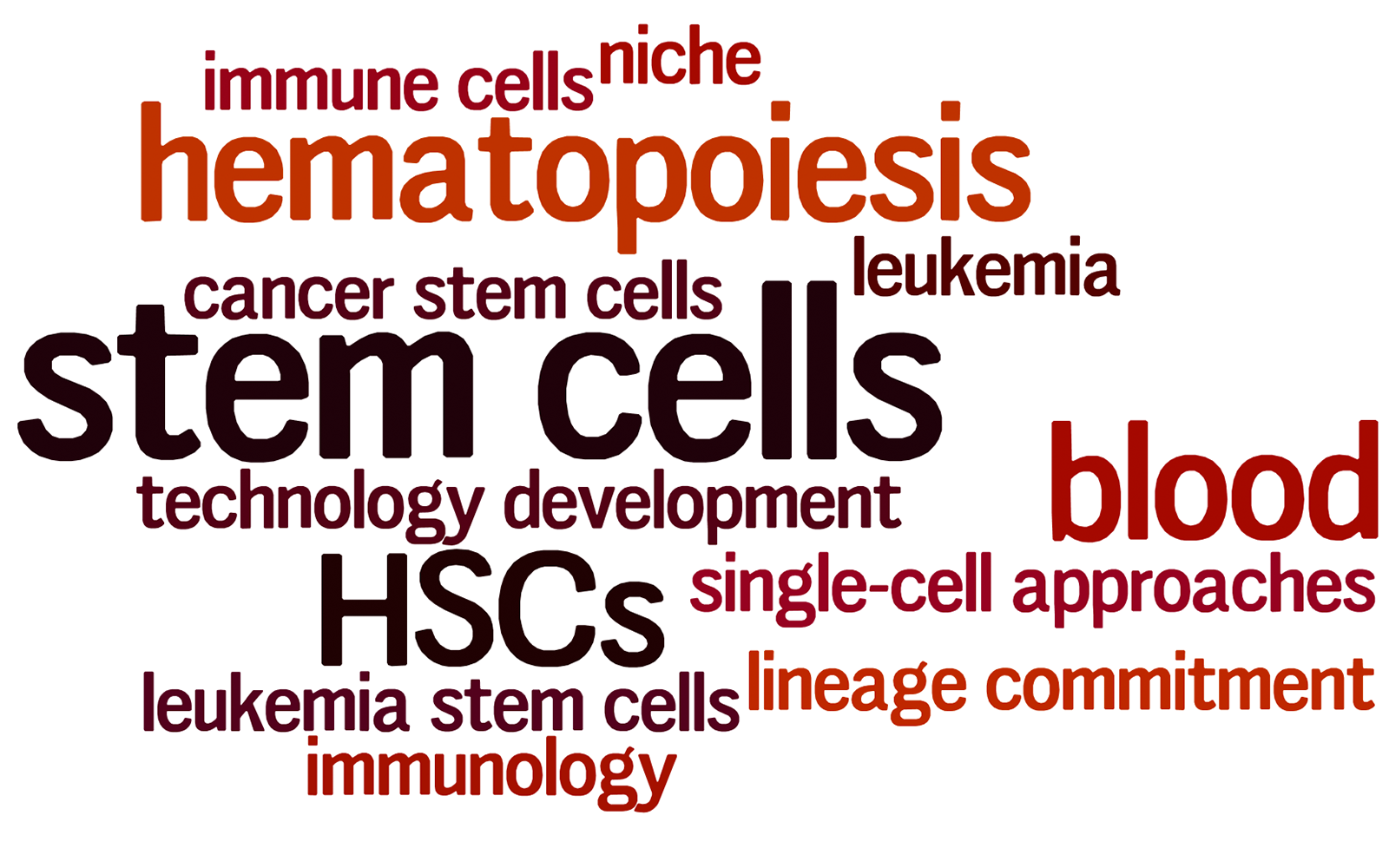Tissues, organs and organ systems are the functional units of our bodies that are specialized in executing all tasks required for life. Individual tissues and organs are composed of several specialized cell types, which act in concert to orchestrate the functions of the respective organ. In regenerative organs, such as the skin or the blood, cell types are constantly replenished by a small population of tissue stem cells. Importantly, organs are constantly patrolled by cells of the immune system, which counteract pathogenic infection and neutralize precancerous cells. The disruption of regenerative stem cell circuits, as well as defects in the immune system are main drivers for the development of a wide range of diseases, such as autoimmune disorders and cancer.
Therefore, understanding organ function on a molecular, cellular, functional and systems level represents a key step in the development of novel therapeutic approaches in regenerative medicine and cancer research. Together with our collaboration partners, our lab develops novel approaches that permit the molecular, cellular, spatial and functional characterization of regenerative tissues at single-cell and systems level. This allows us to gain qualitative and quantitative insights into the intercellular crosstalk and the cellular organization of tissues, organ systems and ultimately entire organisms. We are particularly interested in understanding the cellular organization and the regenerative pathways of the blood and immune system during health and disease. Our main research topics are to decipher:
- the molecular and cellular basis of stem cell lineage commitment
- the molecular and functional heterogeneity of blood stem cells
- the bidirectional interaction of blood stem cells with the immune system
- the fundamental basis of bone marrow niche organization
- the molecular basis of transformation of healthy to cancer stem cells during leukemogenesis
- the role of the immune system in hematological disease, such as acute myeloid leukemia and multiple myeloma
Moreover, our lab has a strong interest in the development of novel approaches to investigate stem cell lineage commitment and to dissect tissue heterogeneity. These include single-cell ex vivo and single-cell in vivo functional assays, as well single-cell transcriptomic and genomic approaches (in collaboration with L. Steinmetz and L. Velten) in combination with advanced mouse models and primary human samples.
Our work is based on a multidisciplinary and collaborative environment. Please find our collaboration partners here.
Selected Publications
Please find a full list of publications here.
- Baccin, C.*, Al-Sabah*, J., Velten, L.*@, Helbling, P. M., Grunschlager, F., Hernandez-Malmierca, P., Nombela-Arrieta, C., Steinmetz, L. M.@, Trumpp, A.@, & Haas, S.@ (2019). Combined single-cell and spatial transcriptomics reveal the molecular, cellular and spatial bone marrow niche organization. Nature Cell Biology. doi: 10.1038/s41556-019-0439-6 *Shared first authors, @ Joint Supervising authors
- Haas, S., Trumpp, A., & Milsom, M.D. (2018). Causes and Consequences of Hematopoietic Stem Cell Heterogeneity. Cell Stem Cell, 22(5), 627-638. doi: 10.1016/j.stem.2018.04.003
- Brocks D, Schmidt C, Daskalakis M, Li D, Li J, Jang HS, Zhang B, Laudato S, Lipka D, Schott J, Bierhoff H, Assenov Y,Helf M, Ressnerova A, Islam MS, Lindroth AM, Haas S, Essers M, Imbusch CD, Brors B, Oehme I, Witt O, Lübbert M, Mallm J, Rippe K, Will R, Weichenhan D, Stoecklin G, Gerhäuser C, Oakes CC, Wang T, Plass C. DNMT and HDAC inhibitors globally induce cryptic TSSs encoded in long terminal repeats. Nature Genetics. 2017 Jul;49(7):1052-1060
- Hirche C*, Frenz T*, Haas S*, DöringM, Borst K, Tegtmeyer P,Brizic I, Jordan S, Keyser K, Pronk E, Lin S, Messerle M, JonjicS, Falk C, TrumppA, EssersMAG, Kalinke U. Virus infections differentially modulate cell cycle state and functionality of long-term hematopoietic stem cells in vivo. Cell Reports. 2017 Jun 13;19(11):2345-2356. * Shared first author
- Velten L, Haas SF, Raffel S, Blaszkiewicz S, Islam S, Hennig BP, Hirche C, Lutz C, Buss EC, Nowak D, Boch T, Hofmann WK, Ho AD, Huber W, Trumpp A, Essers MA, Steinmetz LM (2017). "Human haematopoietic stem cell lineage commitment is a continuous process." Nature cell biology 19.4 (2017): 271. * Shared first author. Cover Story doi: 10.1038/ncb3493
- Scognamiglio R, Cabezas-Wallscheid N, Thier MC, Altamura S, Reyes A, Prendergast ÁM, Baumgärtner D, Carnevalli LS, Atzberger A, Haas S, von Paleske L, Boroviak T, Wörsdörfer P, Essers MA, Kloz U, Eisenman RN, Edenhofer F, Bertone P, Huber W, van der Hoeven F, Smith A, Trumpp A. Myc Depletion Induces a Pluripotent Dormant State Mimicking Diapause. Cell. 2016 Feb 11;164(4):668-80. Cover Story
- Paul F, Arkin Y, Giladi A, Jaitin DA, Kenigsberg E, Keren-Shaul H, Winter D, Lara-Astiaso D, Gury M, Weiner A, David E, Cohen N, Lauridsen FK, Haas S, Schlitzer A, Mildner A, Ginhoux F, Jung S, Trumpp A, Porse BT, Tanay A, Amit I. Transcriptional Heterogeneity and Lineage Commitment in Myeloid Progenitors. Cell. 2015 Dec 17;163(7):1663-77.
- Haas S, Hansson J, Klimmeck D, Loeffler D, Velten L, Uckelmann H, Wurzer S, Prendergast ÁM, Schnell A, Hexel K, Santarella-Mellwig R, Blaszkiewicz S, Kuck A, Geiger H, Milsom MD, Steinmetz LM, Schroeder T, Trumpp A, Krijgsveld J, Essers MA. Inflammation-Induced Emergency Megakaryopoiesis Driven by Hematopoietic Stem Cell-like Megakaryocyte Progenitors. Cell Stem Cell. 2015 Oct 1;17(4):422-34.
- Cabezas-Wallscheid N, Klimmeck D, Hansson J, Lipka DB, Reyes A, Wang Q, Weichenhan D, Lier A, von Paleske L, Renders S, Wünsche P, Zeisberger P, Brocks D, Gu L, Herrmann C, Haas S, Essers MA, Brors B, Eils R, Huber W, Milsom MD, Plass C, Krijgsveld J, Trumpp A. Identification of regulatory networks in HSCs and their immediate progeny via integrated proteome, transcriptome, and DNA methylome analysis. Cell Stem Cell. 2014 Oct 2;15(4):507-22. Cover Story
- Klattenhoff CA, Scheuermann JC, Surface LE, Bradley RK, Fields PA, Steinhauser ML, Ding H, Butty VL, Torrey L, Haas S, Abo R, Tabebordbar M, Lee RT, Burge CB, Boyer LA. Braveheart, a long noncoding RNA required for cardiovascular lineage commitment. Cell. 2013 Jan 31;152(3):570-83.

